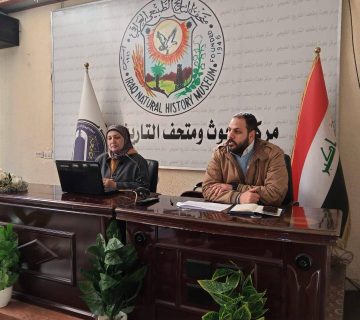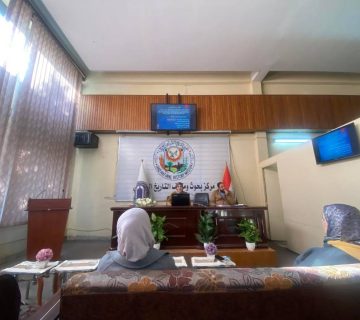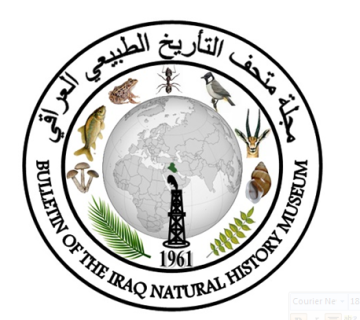Continuing our center’s commitment to scientific exploration, a successful workshop on invasive plants was held today, Sunday, April 28th, 2024. This event was organized by the committee for workshops and seminars, led by Mr. Muhammad Enad Ghazaon, with the invaluable support and guidance of Assistant Professor Dr. Hana Hani Al-Saffar and the center’s administration.
The workshop, titled “Invasive Plants: The Strange Pros and Cons,” was led by agricultural engineer Enas Abdel Khalifa. Dr. Khansa Rasheed Majeed, M.M. Ali Kamel, and other esteemed speakers delved into the reasons behind the rapid spread of invasive plants, including suitable environments free from competition and a lack of natural predators.
Discussions explored the negative impacts of invasive plants, such as outcompeting native species and disrupting the ecological balance. The workshop aimed to raise awareness about different types of invasive plants, proper management strategies, and even the potential benefits these plants can offer.
The workshop concluded with a set of important recommendations:
Monitoring and Regulation: Increased focus from researchers and institutions on monitoring the introduction and spread of exotic plants to prevent them from becoming invasive. Clearer legislation for agricultural quarantine is also necessary.
Utilizing Existing Resources: Leveraging existing databases on invasive species to improve communication, provide guidance, and support better management practices.
Public Awareness Campaigns: Encouraging broader social and cultural appreciation for biodiversity at the national level. This includes supporting the World Customs Organization’s efforts to address invasive alien species within international trade regulations.
Online Resources: Developing accessible online platforms to educate the public about the threats posed by invasive species to ecosystems.
Multi-Sectoral Approach: Engaging various stakeholders, including agriculture, public health, and relevant industries, in planning and implementing invasive species management strategies. Stricter penalties for violators were also emphasized.
By fostering such informative events, our center remains dedicated to serving society, advancing scientific knowledge, and protecting our environment.









